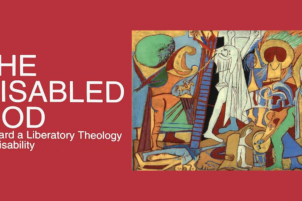My name is Harel Chait, and I am a person with blindness and a kidney transplant who lives in Israel. I work as a consultant, focused on web accessibility, for people with disabilities. Among my clients are corporations, government offices, and health services. I have been doing this work for about nine years, and participated on the Israeli standard team (SI 5568), addressing that issue. Additionally, I am a PhD candidate in Business Administration and Information Systems at Bar Ilan University. My academic work focuses on web accessibility and I have presented my work at a few international academic conferences.
What is Web Accessibility?
Web Accessibility is a way to make everyone – including the disabled – to have access to the web and internet as a whole.
Web accessibility means that people with disabilities can access – ie, use – the Web. As Shabbat Smile’s readers most likely know, disability simply means a situation or condition that hinders us from doing something we could easily do if we did not have that condition. People with disabilities can perceive, understand, navigate, and interact with the Web, and can contribute to the Web’s content. Web accessibility also benefits those with temporary or conditional disabilities, which in some cases may be due to aging (such as cataracts), illness (such as carpal tunnel syndrome), an accident (such as a broken arm), and/or slow internet connection.
Why is Web Accessibility important?
The Web and Internet access is an increasingly important resource that touches most aspects of our lives: education, employment, government, commerce, health care, recreation, and more. It is important that the Web be accessible to everyone in order to provide equal access and equal opportunity to people with disabilities. An accessible Web can help people with disabilities participate more actively in society. Also, an accessible website is often one of the easiest ways to do business with many people with disabilities. For instance, people who cannot read print material, people who have difficulty going to a physical store or mall, and others. Furthermore, what we do for accessibility overlaps with other best practices such as mobile Web design, usability, and search engine optimization (SEO).
An accessible website gives the access to information and interaction for many people with disabilities. That is, the accessibility barriers to print, audio, and visual media can be much more easily overcome through Web technologies.
Regulations and Standards in Israel and Abroad
In Israel, the Web accessibility standard (SI 5568) was published in June 2013 and is based on the Web Content Accessibility Guidelines (WCAG) which is written by W3C (Web World Wide Consortium). In October 2015, every new website, mobile application and digital document should be accessible according to this standard; older ones had some exemptions. Today, most of Israel’s websites are not accessible due to loopholes found and used; and the preference prevails to not invest the money needed to make online products accessible. Clearly, they are missing the bigger picture: that doing what is right (ie, investing in accessibility), the companies would do well: their revenue and bottom line would increase dramatically.
Last October, the US Supreme Court decided that Domino’s Pizza website and other retail websites should be accessible. Additionally, the Department of Justice is in the middle of a process to force the federal sector to make its websites accessible by the WCAG. In England, from September 2019, all of the public sector websites are required to be accessible. It becomes evident that different nations are dealing with internet accessibility issues through different regulations and standards, even though the web’s reach is global.
My experience
As a web accessibility consultant for people with disabilities, I have learned much. The main challenge is a) convincing decision makers about the importance of making online products accessible; and b) creating a collaboration with the managers, developers, designers and etc. to build accessible online products. A greater collaborative effort is needed to ensure that loopholes are closed; and, as a result, greater revenue is gained as a result of including web access to the largest minority of society: people with disabilities.
For any more information, please contact me at Harel@Chait.info.
In our Jewish Disability Perspectives newsletter, RespectAbility welcomes a wide spectrum of voices. The views expressed in each Jewish Disability Perspectives contribution are those of the guest contributor.








